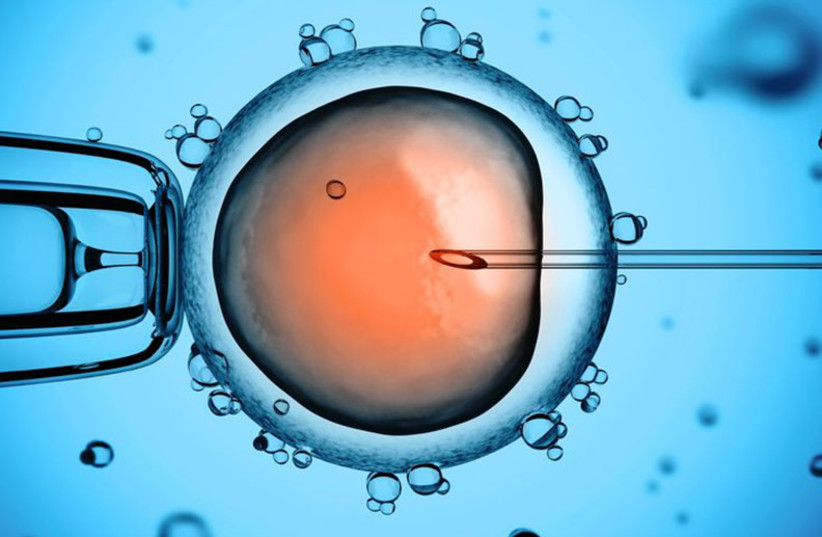Recently, the Supreme Court of Alabama ruled that stored embryos frozen in fertility clinics had the legal status of a minor. As such, clinics in which embryos had been negligently destroyed could be held liable under laws that punished the wrongful death of a minor.
This controversial ruling caused an immediately chilling effect on in vitro fertilization (IVF) facilities within the state, as IVF treatment regularly generates multiple embryos which get stored and ultimately destroyed when they are deemed unfit or unnecessary. The ruling reflects a conflict generated by a specific worldview (in this case, which deems life to begin at conception, even in a petri dish) clashing with established medical practice that utilizes different ethical assumptions.
During IVF, eggs (ova) retrieved from the woman’s ovaries are placed in a petri dish with sperm from the potential father and allowed to combine. Embryos are selected for transfer based on their quality and likelihood of developing into a healthy pregnancy. Unused embryos which are deemed to be high quality are cryopreserved for possible future use. In many cases, multiple embryos are selected for transfer to increase the probability of a successful pregnancy. This, in turn, strengthens the possibility of multi-fetal pregnancy, with two to four fetuses developing in utero.
Maintaining a healthy pregnancy becomes more difficult in these circumstances, particularly when dealing with three and especially four fetuses. Spontaneous miscarriages are common, premature deliveries are frequent, and the chance of children born with cognitive impairments or cystic fibrosis increases dramatically. For this reason, medical professionals usually recommend, or at least suggest, fetal reduction.
When four fetuses are developing, halachic decisors unanimously agree with fetal reduction, usually down to two. This may also be necessary in the case of triplets, although the Machon Puah center for fertility and Halacha generally suggests this course of action only when there are medical indications or specific concerns with the given pregnancy. As always, couples are encouraged to work together with their doctor and rabbi to find the appropriate approach for their circumstance.

Generally speaking, Halacha only allows for abortion for therapeutic reasons, with decisors greatly divided over the scope of justifying rationales. A fetus, particularly in the early stages of pregnancy, might have a reduced moral status, but we still recognize its value as a future life force. For that reason, we even violate Shabbat to preserve the health of a fetus.
So what justifies fetal reduction?
One possibility is when the multi-fetal pregnancy endangers the mother’s life or significantly threatens her health stability, both physical and mental. Many times, the mother’s health is relatively secure. Nonetheless, continuing the pregnancy would lead to the demise of all the fetuses. If one fetus in particular is causing damage to the others, it might be deemed as a rodef (pursuer) that can be aborted.
But in general, the argument to allow such fetal reduction is that given the generally reduced moral status of fetuses alongside their future non-viability in these circumstances, the fetuses are seen as being almost being dead already (gavra katila). This allows us to terminate some of the fetuses and retain others, thereby giving greater possibility to producing healthy life from this pregnancy. The chosen fetuses are selected based on their health or the preferences of the parents.
Hopefully, the pregnancy will be successful, with opportunities for future pregnancies created through cryopreservation. At some point, a couple will decide that they no longer have use for their frozen embryos. What should be done with them?
In Italy, influenced by the Catholic Church, which attributes life to these in vitro creations, there are strict regulations on freezing and destroying embryos. A similar sentiment drove the recent ruling in Alabama.
In contrast, Jewish law has never seen these fertilized eggs as having significant moral status. This is because Jewish law doesn’t recognize life as having begun at this earliest stage of in vitro development before implantation has taken place. As leading decisors like Rabbis Mordechai Eliyahu and Shlomo Dichovsky asserted, human life does not begin in a petri dish. (For similar reasons, we generally don’t permit Jews to violate Shabbat to take care of these petri dishes. They don’t yet have the status of a fetus.)
Accordingly, there is no problem with discarding the unused embryos. Alternatively, one may donate them for scientific research, provided that they will be properly disposed of afterward. These rulings regarding the status of pre-implanted embryos and multi-fetal pregnancy reductions make in vitro fertilization possible.
OTHER RELIGIOUS groups have never felt comfortable with IVF in general and are now utilizing state laws to indirectly restrict these procedures. They are certainly entitled to their own religious views from their particular moral viewpoint. The imposition of this viewpoint on others, however, becomes problematic, particularly in cases where many citizens don’t share that perspective.
Of course, in some circumstances, a society will decide to pass legislation based on the moral beliefs of the majority, even when a minority might firmly disagree. Think, for example, about restrictions on polygamy or prostitution. Usually these laws, however, are based on long-standing practices and beliefs that are deeply held by strong majorities.
Furthermore, the severe negative impingement of changing the law on other people, such as, in this case, refusing to assist in solving a woman or a couple’s inability to bring children into the world, requires a high level of support to justify this restriction. I doubt this is the case regarding frozen embryos in Alabama or elsewhere.
As such, the Alabama ruling was an inappropriate infraction of liberty, and it should be reversed. ■
The writer is director of Ematai and author of Ethics of Our Fighters: A Jewish View on War & Morality.
